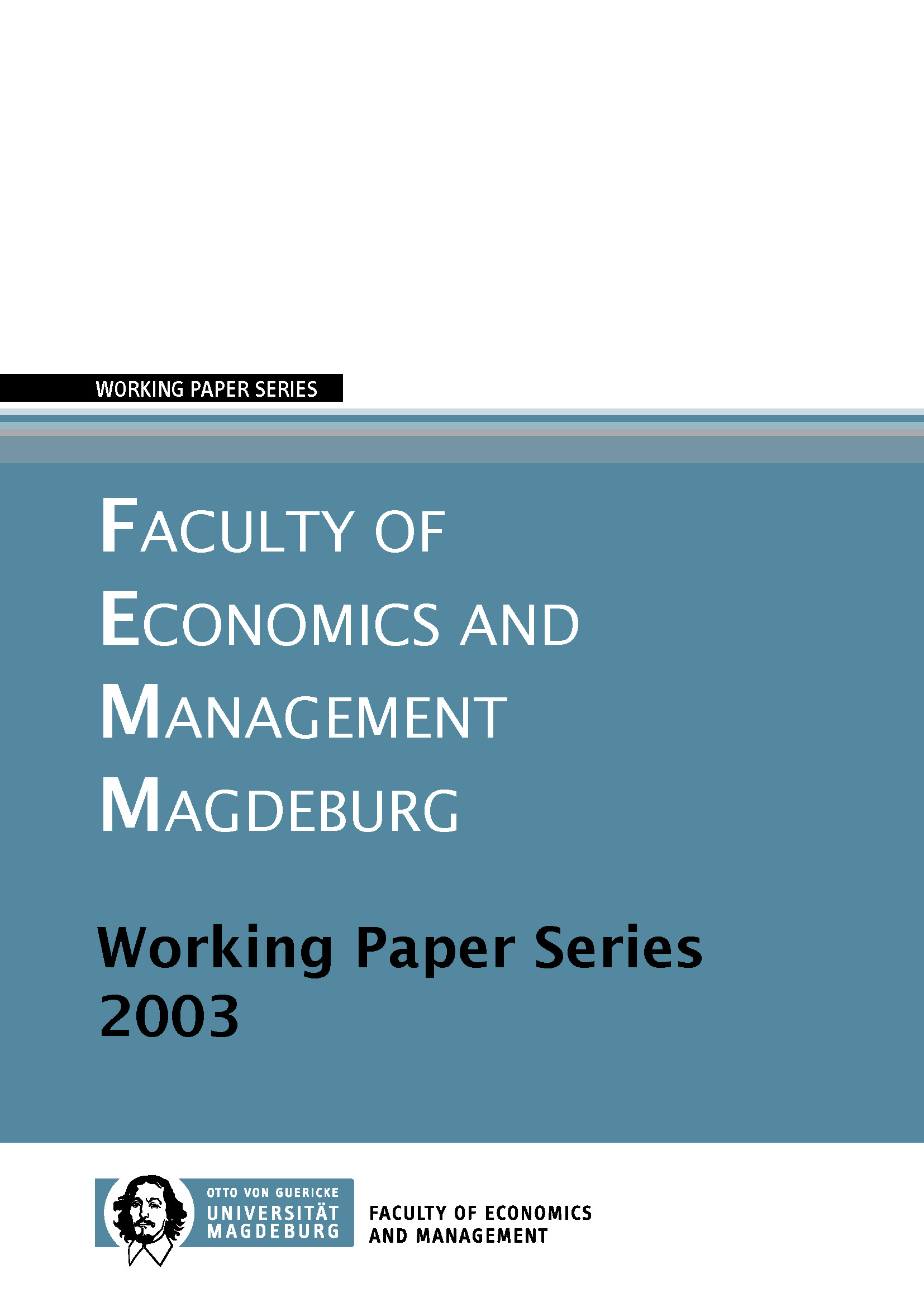Experiments in Environmental Economics
A Survey
Abstract
Laboratory experiments provide economic science with a universal method which can be employed to tackle a great array of problems. In this article we identify three direct connecting factors for the ex-perimental method and environmental economics. First, social dilemmas are, in many cases, at the core of environmental problems: environmental services are often public goods or can be character-ized as common pool resources. Experiments are able to test theoretical hypothesis for individual be-havior in such social dilemma situations and generate stylized facts of individual behavior. The second connecting factor comes from the field of applied experimental work and can be characterized as the testbedding of institutional arrangements for the solution of environmental problems. The last direct application of experimental methods to environmental economics concerns the individual evaluation of environmental resources. But it is not only the great number of papers written on environmental economics that make it worth dealing with this special branch of experimental research. Rather, the environmental problem in all its facets seems to serve as a catalyst which helps to identify some meth-odological problems of the experimental method. For this reason, we will not only try to give an over-view of the recent experiments in environmental economics but also will add some thoughts on the methodological implications of this work.


